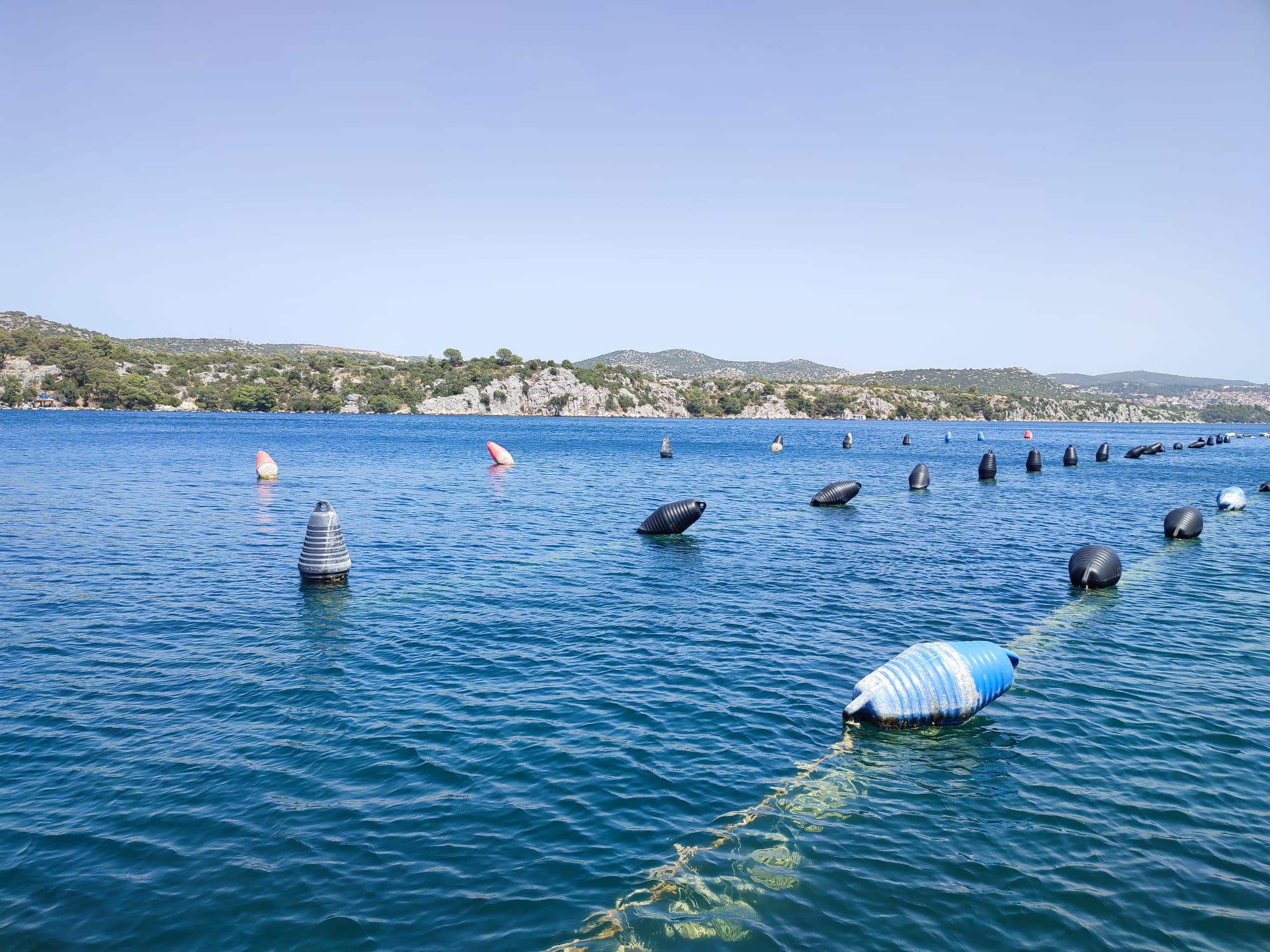The use of single-use plastic in the mussel farming process represents a major environmental problem. Namely, on average, for each kg of mussel, a minimum of 15 cm – 20 cm of disposable tubular net is used, and that with only one transplant per year. In the long term, from an ecological point of view, this method of production is unsustainable. A significant percentage of that plastic ends up in the sea or the narrow coastal zone.
Through a case study, the use of fishing net ropes for mussel growth will be tested (with the use of degradable cotton and thread), and the net ropes are reused in production, completely eliminating the use of single-use plastics. The pasteurization process of shellfish will be developed and tested, which would allow for a significantly longer shelf life while maintaining the organoleptic, sensorial and aesthetic characteristics of the fresh shellfish. This will enable the expansion of the mussel market very quickly.

